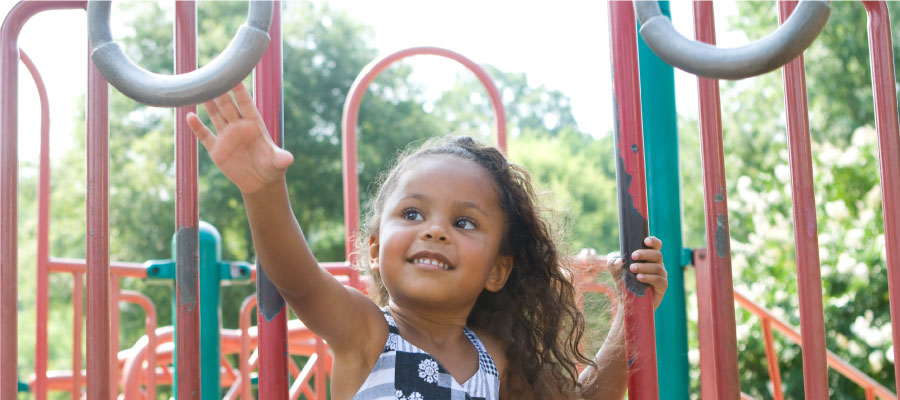Pediatric Vestibular Disorders

While every child stumbles and falls from time to time, it's important that parents take note of any balance problems that appear to be habitual. If your child, or a child in your care, seems to be a bit too clumsy, it could be a sign of a pediatric vestibular disorder, sometimes referred to simply as balance problems.
What is the Vestibular System?
The cause of some balance disorders lies within the vestibular system. Located deep in the inner ear, the vestibular system provides your child with sensory information--motion and spatial orientation. The vestibular system detects gravity and head movement. When the vestibular system functions properly, it sends signals to the brain that work with the other senses to maintain balance. The development of this complex system continues through about age 15.
Diagnosing Balance Disorders
Roughly one in 20 children between ages 3 and 17 are affected by vestibular disorders, but in patients younger than age 6, vestibular disorders can be difficult to diagnose. Young children naturally have trouble describing their symptoms, and the terms “vertigo" and “imbalance" aren't necessarily in every young child's vocabulary. This is why it's so important that the child's caregivers take note of any unusual balance problems they see in the child.
If a child is experiencing a balance disorder, you might notice the following symptoms:
- Clumsiness, unsteady walking, poor posture, leaning, tilting
- Involuntary, alternating, rapid or slow eye movements
- Skipping words or letters when reading (spatial relationships)
- Disorganized writing
- Unexplained nausea, which is sometimes accompanied by headaches or dizziness
- Slow development in gross motor skills such as sitting, standing and walking
- Slower development in activities such as bicycling, swimming and left-right-left leg movements
You may also hear the child complain about:
- Feeling dizzy
- Trouble seeing
- Having a hard time hearing
- A buzzing or ringing sound in the ear
- Ear pain
Causes of Pediatric Vestibular Disorders
There are a variety of causes for vestibular disorders, including:
- Chronic ear infections
- Certain viruses
- Genetic conditions
- Reduced oxygen at birth
- Meningitis
- Immune deficiency disorders
- Head or neck trauma
Treatments for Balance Disorders
Treating vestibular disorders is important for the child's well-being in more ways than one. Falling, of course, can injure a child. However, untreated vestibular disorders can lead to lack of normal movement reactions, posture and motor control and even vision disruptions. Problems such as these can cause developmental and learning delays which can impact a child throughout their life.
Treatments vary for each child. Your Boys Town care team may include audiologists, neurologists, physical therapists, and other experts. It depends on their diagnosis. Rest assured, your child will receive the care and attention they need in their healing process.
Balance
Ear, Nose and Throat;Hearing and Balance
